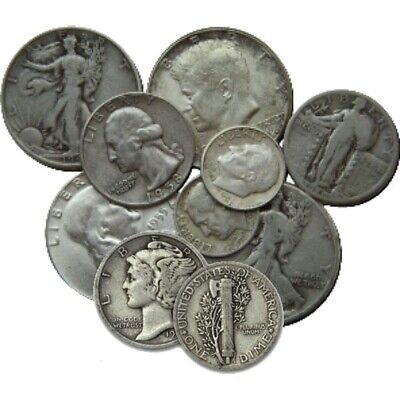Junk silver coins, often misunderstood due to their moniker, are essential to any coin collector or investor’s portfolio. While they are termed “junk,” these coins are far from worthless. In fact, they hold intrinsic value due to their silver content, making them a valuable asset. Proper storage is crucial to maintaining their condition and value over time. This article delves into the best practices for storing junk silver coins safely and effectively.
Understanding Junk Silver Coins
Junk silver coins refer to U.S. coins minted before 1965 that contain 90% silver. These include dimes, quarters, half dollars, and dollars.

Despite being circulated and lacking numismatic value, their silver content makes them sought after by collectors and investors. Given their composition, proper storage is essential to prevent deterioration and preserve their value.
Why Proper Storage Matters
The condition of junk silver coins can directly affect their market value. While these coins are primarily valued for their silver content, maintaining their physical integrity is crucial. Humidity, temperature, and contaminant exposure can lead to tarnishing or corrosion. Therefore, employing effective storage methods ensures that these coins remain in optimal condition over time.
Best Practices for Storing Junk Silver Coins
- Choose the Right Containers
Selecting the appropriate container is the first step when storing junk silver coins. Here are some common and effective options:
- Bank Rolls: These are specially designed for coins and provide a snug fit, preventing them from moving around and causing scratches or damage.
- Zip Lock Bags: While not ideal for long-term storage, Zip Lock bags offer a convenient and affordable temporary solution. Be sure to use bags free from PVC, as this chemical can damage the coins over time.
- Coin Tubes: These rigid plastic containers, specifically designed for coin storage, offer excellent protection from physical damage and environmental factors.
- Control the Environment
Environmental factors can significantly impact the condition of silver coins. Consider the following when storing your coins:
- Humidity: Silver is prone to tarnishing when exposed to moisture. Store coins in a dry environment, ideally with a humidity level below 50%. Consider using silica gel packets to absorb any excess moisture.
- Temperature: Extreme temperatures can cause metal expansion and contraction, leading to potential damage. Store your coins in a location with stable temperatures.
- Air Quality: Keep coins away from areas with high pollution or chemical exposure, as these can cause discoloration or corrosion.
- Handle with Care
Proper handling of junk silver coins is a crucial aspect of their storage. Follow these guidelines to minimize the risk of damage:
- Use Gloves: Natural oils and dirt from your hands can lead to tarnishing or spotting. Always wear cotton or nitrile gloves when handling coins.
- Avoid Direct Contact: Handle coins by their edges to prevent fingerprints and scratches on their surfaces.
- Organize and Document
Maintaining an organized storage system is beneficial for both preservation and inventory management:
- Labeling: Clearly label containers with the type and quantity of coins. This makes it easier to locate specific coins when needed and ensures accurate record-keeping.
- Inventory Management: Keep a detailed inventory of your junk silver coins, including purchase dates and prices, to track the value and provenance of your collection.
Common Mistakes to Avoid
Storing junk silver coins is straightforward, but there are common pitfalls to avoid:
- Using PVC Holders: PVC can degrade over time, releasing chemicals that damage coins. Always opt for non-PVC holders.
- Neglecting Environment Control: Management humidity and temperature can lead to tarnishing and other forms of deterioration.
- Improper Handling: Handling coins without gloves or care can result in physical damage and devaluation.
Conclusion
With their historical and intrinsic value, Junk silver coins deserve thoughtful care and storage. By choosing the proper containers, controlling environmental factors, handling coins carefully, and maintaining an organized system, you can ensure that your collection remains in excellent condition for years to come. Whether you’re a seasoned collector or new to silver investing, these best practices will help you safeguard your assets effectively.
Remember, the key to preserving the value of your junk silver coins lies in proactive and mindful storage strategies. Implement these practices, and you’ll protect your investment and enjoy the satisfaction of a well-maintained collection.